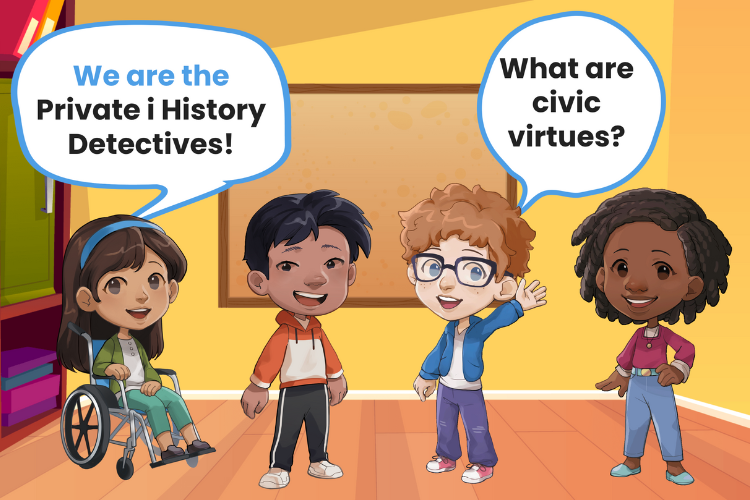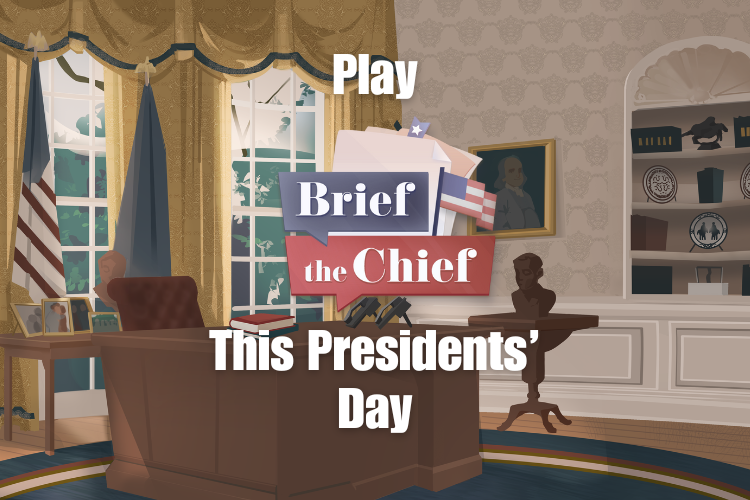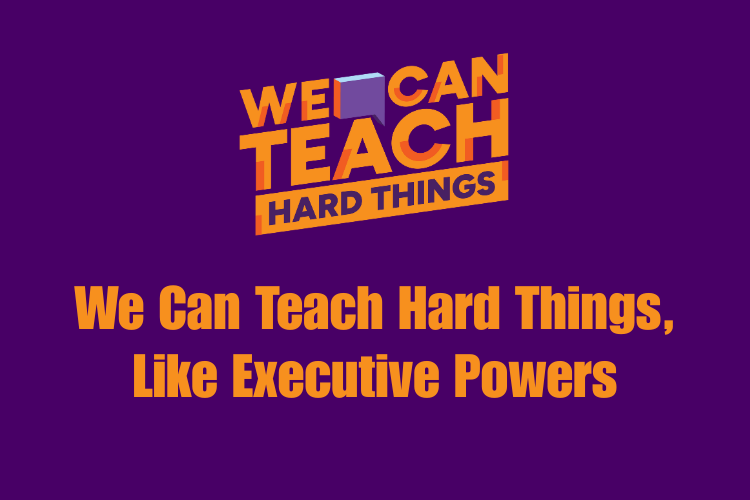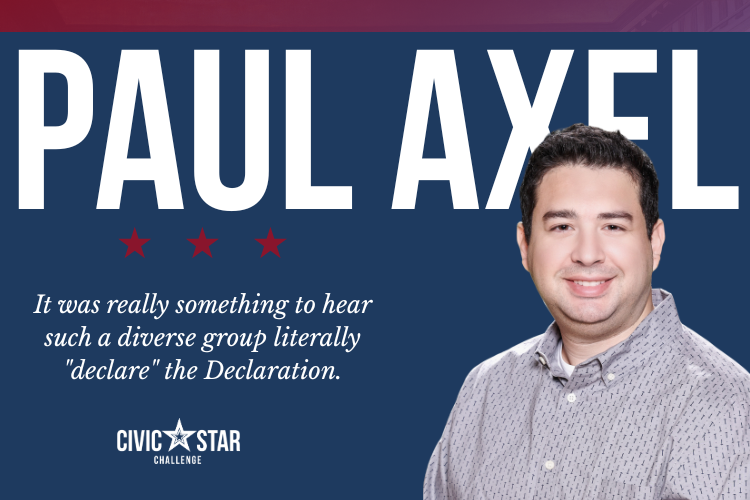Building Classroom Culture through Civics
The beginning of the school year is all about building community and establishing routines. Creating a culture of learning—based on inquiry, perseverance, and generosity—is the pathway to a successful school year!
Every student enters the classroom with different strengths and needs, and every student wants to learn, grow, and be a part of a community. That doesn’t mean building a strong classroom culture is easy. What if you could build community norms and teach civics at the same time? What if you could help students not just follow the rules but understand why we have rules at all?
iCivics has your back! We are excited to release four new units about civic virtue as part of the Private i History Detectives curriculum. This collection of twelve new lessons will help you teach early elementary students about civic virtue while building that essential classroom culture.
What is civic virtue and how does it connect to happy students?
Over two thousand years ago, ancient thinkers, like Aristotle from Greece and Cicero from Rome, wrote about the need for people to think about their community and practice civic virtue. Members of any successful community need to practice self-control and think about their neighbors. A successful republic requires virtuous citizens. These ancient thinkers wrote about individual virtues like generosity, moderation, perseverance, courage, and justice. They believed that practicing virtue throughout one’s life would help a person achieve happiness. Aristotle said, “For one swallow does not make it summer, nor does one fine day; and so too one day, or a short time, does not make a man blessed and happy.” Happiness requires practicing virtue throughout one’s life—It’s a life-long quest. He even had a word for this kind of happiness—eudaimonia!
When the United States became a country in the 18th century, the Founders also believed that a successful republic required civic virtue. They read ancient thinkers like Cicero and thought about how to promote civic virtue in America. They knew education would be key to creating virtuous citizens and that practicing civic virtue would help create a successful republic and make people happy!
Everyone, ages five to one hundred, can think of a time when being generous made them feel good or when persevering through a difficult task brought them satisfaction. Learning about civic virtue can not only help teachers build classroom culture but also encourage good citizenship, and make happy students!
What does it look like to learn about civic virtue with young learners?
In the new collection of Civic Virtue units, the Private i History Detectives Team helps students understand that practicing civic virtue can help them learn, grow, and be happy! Students learn why we have rules, how they connect to civic virtue, and that our country is based on these virtues!
In the introductory unit, students learn that classroom rules, like working hard, thinking before you act, sharing and helping others, and speaking up, help us practice civic virtue at school, in our lives, and in our communities. Students are introduced to how Benjamin Franklin practiced civic virtue throughout his life and how key figures in the founding generation like Mercy Otis Warren, George Washington, John Adams, and Phillis Wheatley learned to practice virtue.
After an introduction to civic virtue, teachers can explore units that focus on individual virtues like generosity, perseverance, and civic-mindedness. Students will begin each individual virtue unit with a lesson that explores what that virtue means in their own lives and the key behaviors necessary for practicing it. In the following two lessons that complete each unit, students will examine historical stories that illustrate civic virtue in action. Students will engage in full participation tasks by holding up their Civic Virtue Signs as they recognize examples of civic virtue in historical narratives and primary sources.
Let’s explore an example!
In the unit “How Can Generosity Help Me Be a Good Citizen?”, students will begin by learning that generosity can include being kind and giving time, money, or things to others. They will explore these virtuous behaviors by acting out school-based scenarios that model generosity, like asking another student to play at recess. Through exploring generous behaviors, students will learn why it is important to be generous.
Students will then make a Generosity Civic Virtue Sign to hold up and show during the next lessons!
In lesson 2, students explore the question, “How Did Children Use Generosity to Help During the World Wars?” By analyzing primary sources such as posters, photographs, and letters, students will uncover how children used generosity to help the U.S. during the World Wars. They will listen to heart-warming stories, make observations, and find relevant evidence as history detectives.
In Lesson 3, students explore the question, “How Did Generosity Help Bring the Statue of Liberty to New York City?” They will learn about why France gave the Statue of Liberty to the United States and how a newspaper publisher and over 100,000 people used generosity to ensure the special gift made it to New York City. While exploring primary sources and listening to the story, students will use their history detective skills and the Civic Virtue Sign to find examples of generosity throughout the lesson while they answer the mystery question.
In each of the units in the Civic Virtues Collection, students learn about amazing civic virtue champions and practice the virtues in their own lives and in the classroom. Teachers can mix in additional civic virtue champions through picture books. The versatile collection has room for ELA, math, health, and science integration. Generosity, perseverance, and civic-mindedness are the first three virtues released in this new Civic Virtues Collection with future units to come!
Private i History Detectives was created by Laurie Risler and Kelley Brown who continue to work with iCivics on the development of new resources.
Laurie Risler is an instructor in the Education Department at Westfield State University where she has been teaching since 2012. Prior to working with pre-service teachers, Laurie was an elementary school teacher and special educator. Laurie loves working with teachers and leading professional development.
Kelley Brown is an instructional coach and government teacher at Easthampton High School in Easthampton, Massachusetts where she has been teaching since 2001. Kelley’s love for teaching civics and government has helped to build a successful We the People program at the high school where her team has continued success, including a national championship in 2020!




